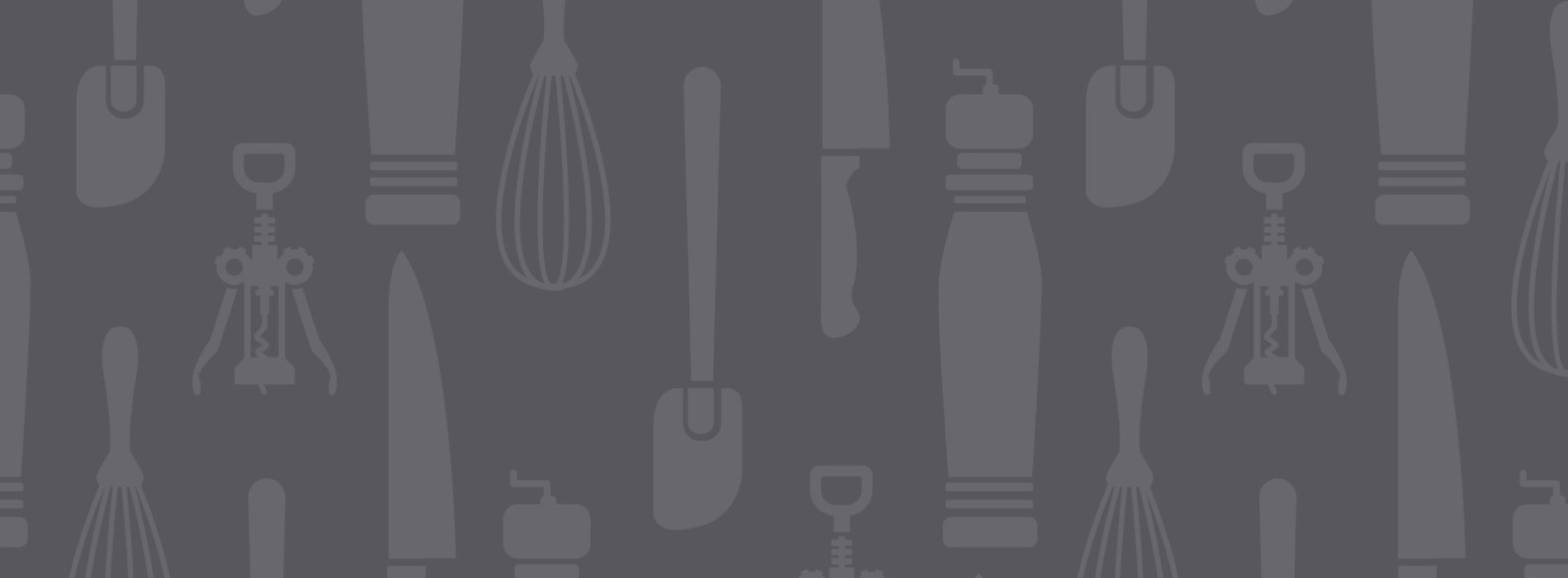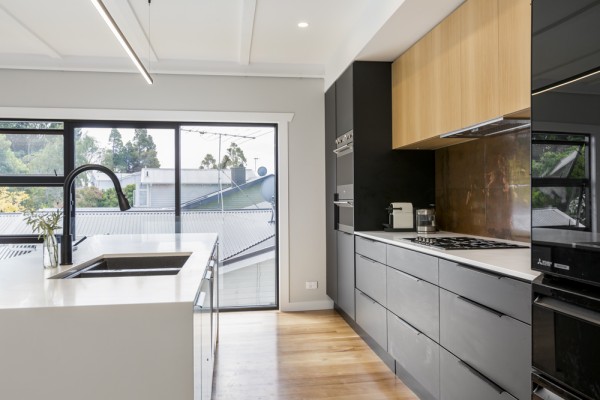Hit enter to search or ESC to close
How Much Does a Kitchen Renovation Cost in NZ?
Kitchen renovations aren’t cheap. You probably already know that. But the real question is… how much are we talking? And honestly, in New Zealand, the price range is massive. Some people manage to do a tidy little facelift for around $15K. Others drop $80K or more without even blinking. Most land somewhere in the middle.
At Kitchen Mania, we’ve been designing and installing kitchens around Auckland for years. We’ve seen it all, from cost-effective kitchen renos on a tight budget to full custom builds with all the bells and whistles. So when we say we know what kitchens really cost in NZ, we’re not guessing. We’re on-site, hands-on, and dealing with real numbers every day.
This guide pulls together everything we’ve learnt to help you figure out what kind of budget you might need. We go through some typical kitchen renovation costs in NZ, show you what affects the price, and give you some practical tips to make smart decisions (without blowing the budget).
New Kitchen Renovation Cost NZ: A Break Down
Alright, let’s get into the numbers. Here’s a rough guide to what you might expect to spend on a kitchen renovation in New Zealand:
|
Type of Renovation |
Estimated Cost (NZD) |
What You Get |
|
Basic |
$10,000–$25,000 |
Keep the same layout. New cabinets, benchtop, basic appliances. Nothing too fancy. |
|
Mid-range |
$25,000–$55,000 |
Better materials, a few layout tweaks, soft-close drawers, engineered stone. |
|
High-end |
$55,000–$80,000+ |
Fully custom, high-end finishes, full re-jig of the layout, premium appliances. |
And here’s what some of the materials might cost you per square metre (just to help you budget smarter):
|
Material |
Approx. Cost (per m²) |
|
Laminate benchtop |
$120–$350 |
|
Engineered stone |
$400–$800 |
|
Natural stone (granite) |
$800–$1,500+ |
|
Vinyl flooring |
$50–$120 |
|
Laminate flooring |
$60–$150 |
|
Tiles |
$90–$250 |
|
Hardwood flooring |
$150–$300 |
Factors Influencing Cost
Let’s talk about the stuff that makes your budget go up (or helps keep it down):
- Kitchen size and layout: Most NZ kitchens fall somewhere between 10 and 20 square metres. The bigger the space, the more materials and labour you’ll need. Also, changing the layout costs more than keeping things where they are. This is especially true when plumbing or walls become involved.
- Materials and finishes: Local products are usually cheaper and easier to get. Imported stuff (like some European hardware or splashback tiles) will bump up the cost.
- Design complexity: If you’re going for a simple kitchen with standard cabinets, you’re likely to spend less. But if you want something open-plan with a scullery and loads of custom details? That adds time, cost, and a fair bit of back-and-forth with your designer.
Here’s a closer look at how a few key parts of the kitchen can influence your kitchen renovation cost:
- Benchtops: Laminate is the cheapest and has come a long way in looks. Engineered stone is super popular and mid-range. Granite or quartz? That’s your high-end option.
- Cabinetry: Flat-pack or stock cabinets save cash. But if your kitchen’s a weird shape or you’ve got big plans, custom is the way to go. Expect to pay for it, though.
- Splashbacks: Tiles are the go-to and fairly affordable. Glass, stone and porcelain looks sharp but can be pricey.
- Appliances: Budget ovens and dishwashers might do the job, but they won’t last as long. Premium appliances (like European brands) cost more upfront. However, they often come with better performance, energy efficiency, and longer warranties.
- Flooring: Vinyl is cheap and easy to clean. Laminate’s a step up. Tiles or hardwood look stunning but will hit your wallet harder (and take longer to install).
- Labour and installer lead times: This bit’s easy to forget. A solid chunk of your kitchen renovation budget will go towards the people doing the work. And keep in mind that good tradies are in demand, so book early if you want to avoid delays.
Ballpark Kitchen Renovation Cost Breakdown by Component
Here’s what the average kitchen renovation in New Zealand might look like, cost-wise:
|
Component |
% of Budget |
Approx. Cost (NZD) |
|
Cabinetry, sinks, taps, hadles, accessories |
28% |
$16022 |
|
Installation and labour |
18% |
$1490 |
|
Appliances |
15% |
$5000 |
|
Benchtops and splashback |
11% |
$4800 |
|
Flooring |
7% |
$2,277 |
|
Lighting |
5% |
$1,449 |
|
Painting |
5% |
$1,587 |
|
Windows and doors |
4% |
$1,408 |
|
Plumbing |
3% |
$1500 |
|
Electrical |
1% |
$2500 |
As you can see, cabinets, accessories and appliances will make up a significant portion of the kitchen renovation budget, so choose wisely.
Budgeting Tips for Your NZ Kitchen Renovation
Blowing the budget is one of the easiest ways to turn your dream kitchen into a nightmare. Here’s how to stay on track and make sure your NZ kitchen renovation cost doesn’t get out of hand:
- Set a realistic budget: Before you start picking out splashbacks, figure out what you can actually afford... and stick to it.
- Opt for mid-range materials: You don’t need marble benchtops to get a sharp-looking kitchen; laminate or engineered stone can do the job without the price tag.
- Look for deals on appliances and materials from NZ suppliers: Watch out for clearance sales, end-of-line stock, and package deals.
- Have a contingency fund: Set aside 10–20% of your total budget for those 'uh-oh' moments (because they’ll probably happen).
Hidden NZ Kitchen Renovation Costs to Watch Out For
When it comes to kitchen renovation costs in NZ, the stuff you don’t see coming can do the most damage. Here are some common hidden costs that pop up:
- Asbestos removal: If your home was built before the 2000s, there’s a chance asbestos is hiding behind the walls or under the floor.
- Structural issues: Once demolition starts, you might find rotten timber, sagging floors, or walls that aren’t where the plans said they’d be.
- Outdated wiring: Old homes often need full rewiring to handle modern appliances and meet today’s electrical standards.
- Weathertightness concerns: If your kitchen backs onto an external wall and there’s water damage or poor cladding, you could be in for a bigger fix.
- Resource consents: If you’re moving plumbing, changing windows, or altering the structure, you might need council approval (which takes time and money).
- Additional plumbing: Moving sinks, dishwashers, or gas hobs means extra pipes, new drainage, and a bigger plumbing bill.
- Gas: Gas connections or changes usually need certified work and sign-off, which doesn’t come cheap.
- Ventilation: Rangehoods need to be ducted properly to the outside, and in some homes, that can mean cutting through concrete or brick.
- Electrical work: Adding extra outlets, moving light switches, or upgrading your switchboard can cost more than you expect (especially if the existing setup’s a mess).
How to Identify Hidden Costs
The best way to avoid nasty surprises is to dig deep before you even get started. During the planning phase, do a full inspection of your kitchen space. Check the condition of the walls, floors, wiring, plumbing, and anything that might be behind or underneath. If you’re not sure what to look for, get a builder or kitchen designer in early to have a proper look.
Then, when you start getting quotes, ask for everything to be broken down clearly. Don’t just take the bottom line. Ask what’s included and what’s not. The more detail you get upfront, the fewer surprises you’ll have later.
Our sister company, Professional Installations provides comprehensive quotes detailing everything needed for a seamless project. Get in touch to plan your perfect kitchen with confidence!"
How to Reduce Kitchen Renovation Costs
Kitchen renovation costs in NZ can creep up fast. But there are smart ways to keep things under control without ruining the end result:
- Consider DIY options: Jobs like removing the old kitchen and painting walls are simple enough to do yourself and can save a chunk of labour costs.
- Know when to hire professionals: For plumbing, electrical, or anything that needs to meet NZ building code, pay the pros. It’s not worth the risk.
- Don't cut corners: Skipping proper compliance or going with dodgy workmanship might seem cheaper now, but it can lead to major issues (and big bills) down the track.
How to Choose the Right Kitchen Installation Company
Picking the right kitchen installer can make or break your whole renovation. A good starting point is to look for a kitchen company with adequate experience. Check their reviews online, ask around, and see what people are saying. It also pays to source someone local who knows the ins and outs of council rules, product availability, and trusted tradies in the area.
Don’t go with the first quote you get. Chat to a few different kitchen renovation companies and compare what they offer. Make sure you’re comparing apples with apples. One might look cheaper upfront but leave out key things like plumbing or rubbish removal.
When you sit down with them, ask good questions. What’s included? What’s the timeline? Do they handle the whole process or just parts of it? What happens if something goes wrong? Get clear on the warranty, check out photos of past work, and trust your gut. If something feels off, keep looking.
Auckland Kitchen Renovations
At the end of the day, how much your kitchen renovation costs in NZ depends on your space, your wishlist, and how much you’re willing to spend. Some people want a basic kitchen renovation just to freshen things up. Others go all in on a full custom build. Whatever you’re after, the trick is knowing where your money’s going and working with people who actually know what they’re doing.
That’s where we come in.
At Kitchen Mania, we live and breathe kitchens. We’ve helped thousands of Aucklanders design, plan, and build their dream kitchens, whether it’s a simple upgrade or a full high-end transformation. We’re locals. We know the real costs, the common traps, and how to make the whole process a whole lot easier.
If you’re ready to start your kitchen renovation (or even just thinking about it), get in touch. We can walk you through your options, help you make a plan, and make sure you get a kitchen that works for your home and your budget.

